Signs Of Anxiety In Young Children And The Ways You’re Making It Worse
More Than Tummy Trouble: Signs Of Anxiety In Young Children And The Ways You’re Making It Worse
Share the post
Share this link via
Or copy link
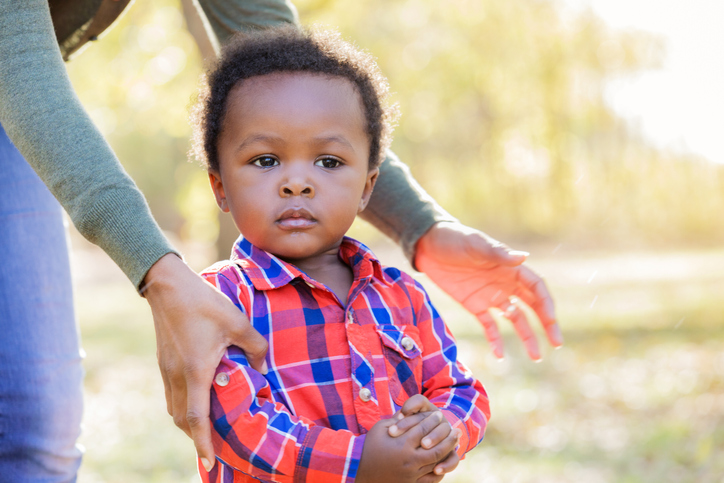
Source: asiseeit / Getty
Any parent of an infant or toddler knows that clear communication can sometimes be a battle as children learn to identify and name their feelings. For example, I’m currently helping my four-year-old understand that every “tummy rumble” doesn’t means she’s hungry. She’s also learning how to “use her words” instead of whining which can be a tedious process for both parent and child. I often have to remind myself that she’s only been on this earth for four years. As much as I joke that Black parents are quick to dismiss the stress and mental health struggles of anyone under a certain age that isn’t paying bills or having back problems, the truth is life is difficult. Your toddler’s frustrations and worries about life’s challenges feel just as real as any adult’s. They get tired, hungry, cranky, and scared just like we do. I would even argue they have an even tougher time because they have yet to experience many situations that allow them to overcome barriers and build confidence.
What also makes it harder for children to express feelings, is your reaction as parent. Simply understanding child development doesn’t mean you won’t be annoyed when your child is asking for the third cup of water to avoid bedtime or spills an entire half gallon of OJ because she insisted ” I can do it myself.” What doesn’t help the situation is yelling, minimizing your child’s feelings, or failing to provide tools to help them problem solve. Don’t get me wrong, I know my mom has nothing but unconditional love for me, but I’d be lying if I said I don’t have a collection of memories from my own childhood that involve being shamed or criticized every time something didn’t go precisely according to plan.
Even as a parent now, there are times my four year old has fallen off a couch after using my living room as a trampoline park. I may have warned her 10 times before to stop before she hurts herself and when she finally does my first instinct is to yell. It’s not actually because I am angry at her, but more because I’m scared, but I quickly recognize that all my anxiety does is add to her frustration. I’ve now recognized that I don’t want to parent according to the philosophy of lash out first, love later. Children get sick, fail classes, spill things, lie and in general are far from perfect and that isn’t always something that requires fault, blame or an irrational outburst.
Love MadameNoire? Get more! Join the MadameNoire Newsletter
We care about your data. See our privacy policy.
The more we become aware as a community of how common mental health struggles can be, the more we begin to normalize and name conditions like anxiety and become familiar with what are own triggers are. Anxiety is characterized by feelings of fear, worry or nervousness and not only are those feelings normal but they are necessary for survival. Anxiety is characterized as a disorder when those feelings are excessive, irrational or prevent someone from carrying out their daily activities in a healthy way. According to the Anxiety and Depression Association of America, anxiety disorders are the most common mental illness in the U.S., affecting 40 million adults in the United States, age 18 and older, or 18.1% of the population every year.
Being hyper-aware that anxiety disorders are real can sometimes result in parents over-diagnosing children for common challenges in development or ignoring their concerns all together. Every experience with anxiety doesn’t automatically signal a disorder. With toddlers, anxiety can be even more challenging because they are often unable to articulate their feelings. It’s a parent’s responsibility to help children interpret, label and navigate uncomfortable feelings and situations so that they don’t grow dependent on unhealthy coping skills. Here are a few ways your child might be trying to tell you they are nervous, scared or worried:
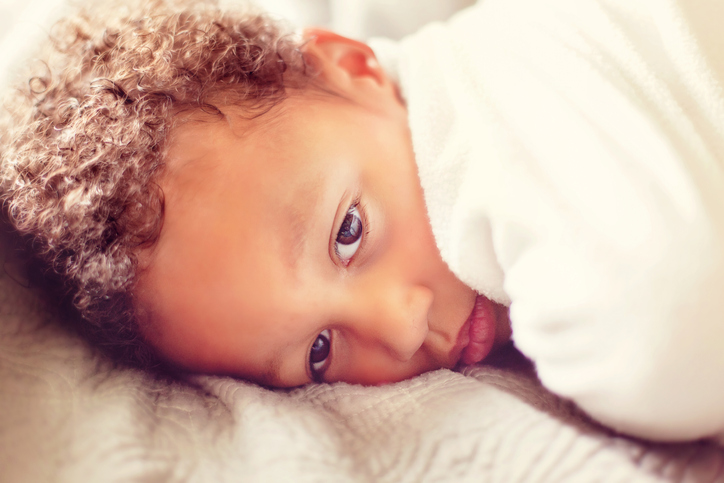
Source: sarahwolfephotography / Getty
Tummy trouble or other random illnesses or pain
We’re all familiar with the feeling of our stomach doing a somersault before public speaking, a first date or even a intimidating medical procedure. Just like us, kids can experience anxiety when encountering new experiences and people, or familiar situations that they have caused discomfort in the past. Your child may not tell you outright that they’re scared of the dark or meeting new children on the first day or preschool. They’ll simply tell you, “My stomach hurts.” What’s important is to not dismiss their feelings as attention-seeking or assume they ate too many cookies. Anxiety really can result in feelings of nausea or upset stomach because the stomach houses the enteric nervous system, often called the body’s second brain. Nervousness and fear is enough to trigger those nerves and literally cause a stomachache. Put down the Pepto and the natural instinct to tell your child there is nothing to be afraid of. Instead help them identify what exactly is causing their anxiety and then explore ways to overcome it.
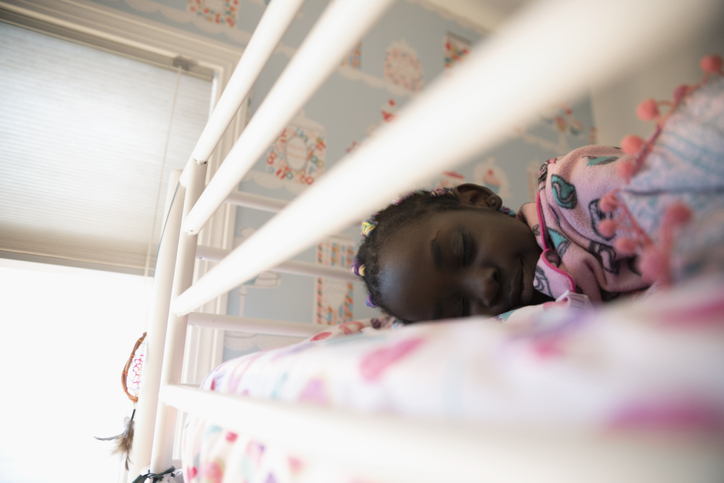
Source: Hero Images / Getty
Trouble sleeping or avoiding bedtime
Bedtime can be the culmination of a series of very real fears for young children: the dark, separation anxiety and things that go bump in the night. Even if you’ve had a baby that had no problem sleeping through the night in their own room, at around two-years-old, children’s thought processes grow more advanced and their memories are much longer. This means they can begin to make connections such as the monster from the scary movie might be in their closet. Just ask the mom who made the mistake of leaving Adult Swim on when my toddler slept in my bed one night. I don’t know what homegirl saw, but I blame “Robot Chicken” and now we are strictly Disney after 12 AM. Developing healthy bedtime routines can include using night lights, “lovies” like blankets or stuffed animals, listening to them as well as affirming your child that their worries are valid while empowering them push through their fears.
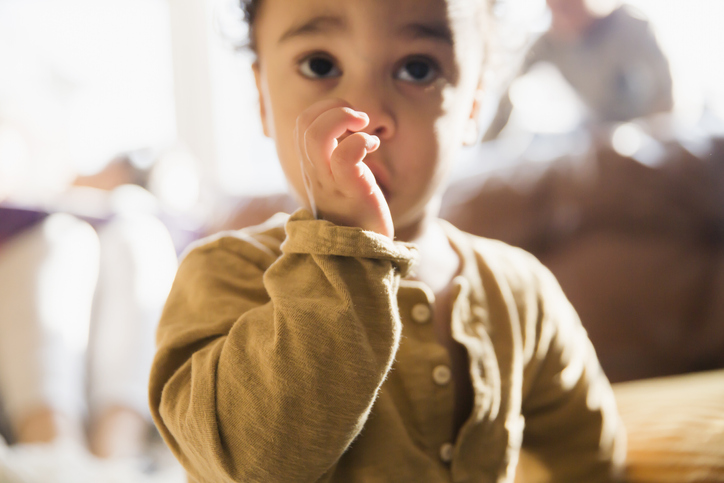
Source: Hoxton/Sam Edwards / Getty
Thumb-sucking, fingernail biting and heavy reliance on self-soothing behaviors
For me it’s nervous laugh. When I encounter situations that are awkward or emotionally charged, I‘ll often laugh to break the tension, no matter how inappropriate it may seem. We all have nervous ticks or self-soothing behaviors that help us cope with difficult or uncomfortable situations. My four-year-old will often fake sneeze followed by the claim, “I’m feeling a little sick,” when she is placed on the spot or addressed by a stranger or someone she’s not completely familiar with. Coping mechanisms can be a healthy way to handle stress unless they are completely getting in the way of your child performing or navigation through routine situations. The key is to not punish your child because of the behavior, but to identify what is causing it and providing healthy alternatives to deal with nervousness. In addition, I never put pressure on my child to perform or engage with people to put THEIR feelings at ease. My four-year-old is allowed to be reserved or withdrawn as she continues to become acclimated to new experiences and different social situations.
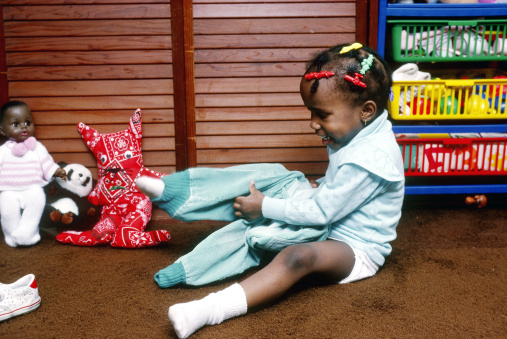
Source: Margaret Miller / Getty
Obsessiveness with order and routine
You’ve heard it repeatedly: Children thrive on routine and structure. When children are aware their basic needs will be met and they are surrounded by safety and support, they can focus on learning ABC’s and 123’s and about the world around them. Typically children will become obsessed with order when they feel the routine and order of their life is threatened or they feel unsafe. Did you recently move? Has a family member or acquaintance recently moved into the house? Did your child witness a scary situation? Has there been a death or relative or close friend? If your child seems fixated on matching socks, their toys being in a certain order or having a PB&J precisely every time they watch Paw Patrol, it may be because they’re trying to regain control over events in their life to make up for events in their life that make them feel powerless.
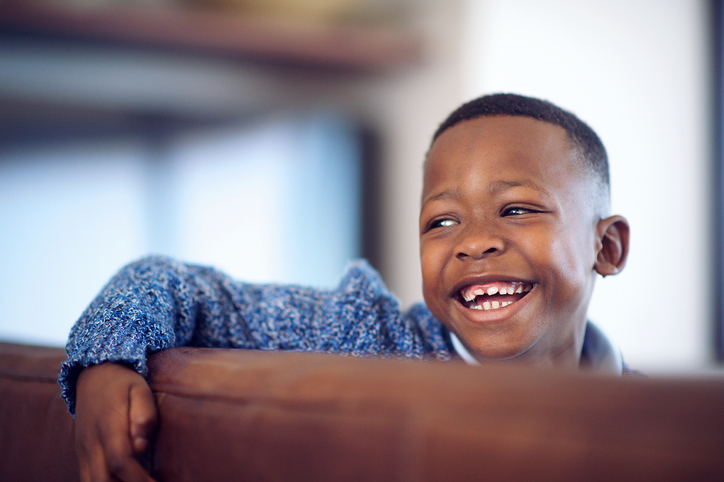
Source: wilpunt / Getty
Fixation on behaviors or phrases
Toddler’s don’t enjoy being annoying, but I was at a point where I was ready to cancel my Netflix subscription if my daughter sang “Whompit Bam Slam” from True and the Rainbow Kingdom one more damn time. In addition to anxiety, it’s important to remember toddlers are obsessed with autonomy. Whether it’s buttoning a shirt or learning a new song, once a kid has mastered a skill they want to do it over and over and show you repeatedly that they’ve got this “getting dressed” thing down to a science. Just like self-soothing behaviors, fixation on phrases and behaviors can be how your child copes with situations in which they feel they have no control. Instead of getting aggravated one cartoon catchphrase at a time, identify if your child child is facing a learning barrier and help them gain the courage to learn new skills instead of becoming dependent on ones they’ve already mastered.
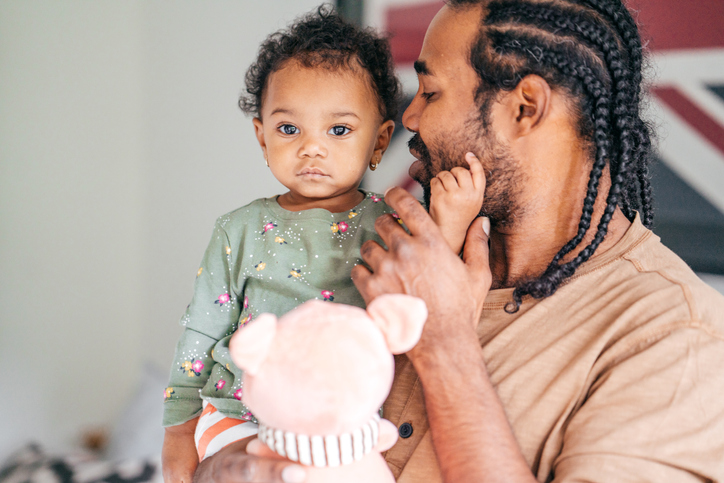
Source: kate_sept2004 / Getty
Clinginess
It’s a toddler’s natural instinct to put a literal physical barrier between themselves and what they perceive to be a threat. So whether I’m introducing her to a co-worker or cousin that lives long distance, my four-year-old is usually grabbing my knee with white knuckles as she peers from behind my thigh. Separation anxiety and nervousness with meeting new people is normal for young children, and so far my four-year-old is typically introverted taking a while to warm up to new situations and people. The key is knowing your child’s personality and not forcing them to be a social butterfly. Whether it was visiting a Pre-K or going to an amusement park, what I found helped my daughter was preparing her for situations and talking through them. Knowing what to expect and how to manage situations has started to help her be as confident being herself in new situations as she is at home.
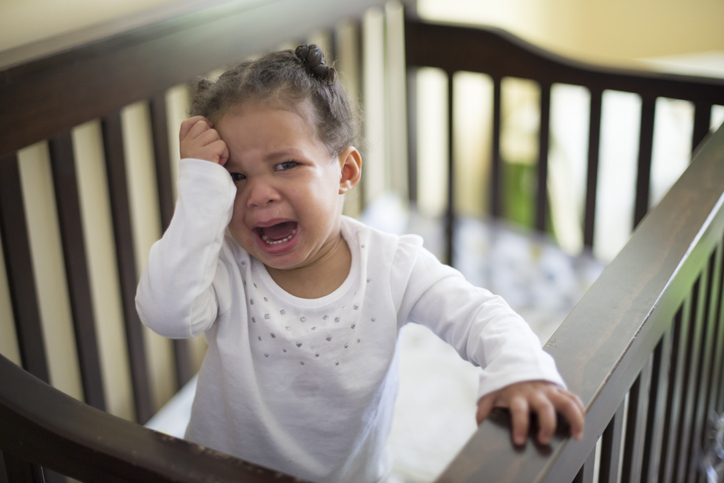
Source: Andria Patino / Getty
Tantrums
It can be easy to believe that your toddler losing his/her ish in Target when all you need is toilet paper, batteries and bananas is a conspiracy to make you lose your mind. Every time I sit through a staff meeting that could’ve been an e-mail, I’m tempted to throw the projector across the room too, but a part of parenting is teaching your child to relieve their stress in healthy ways. If your child is acting the fool because they can’t get the Lucky Charms or have to leave the hamsters in the pet store (my daughter literally broke down after a trip to Petco for dog food the other day) try giving them alternatives. I told my daughter we would be visiting the zoo in the next few weeks, which was completely true and helped her recognize this would not be the last small furry mammal she witnessed in her lifetime. Part of relieving anxiety is helping children realize that one moment doesn’t require panic and helping them gain perspective.
Toya Sharee is a sexual health expert who has a passion for helping young women build their self-esteem and make well-informed choices about their sexual health. She also advocates for women’s reproductive rights and blogs about everything #BlackGirlMagic and #BlackBoyJoy. Follow her on Twitter @TheTrueTSharee or visit her blog, Bullets and Blessings.
Related Tags
anxiety-

My Husband And I Attempted To Have A Creative Date Night At Home -Without A Babysitter - Here's How It Went
-

She Tried It: Ivy Park Drip 2 and 2.2 Black Pack
-

Vontélle Eyewear Founders Score History-Making Licensing Deal With Paramount
-

Our Health, Our Power: Debunking Myths And Taking Charge This Open Enrollment



